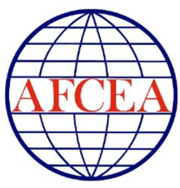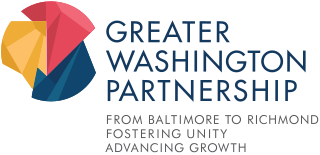Related Research Articles

Virginia Tech (VT), formally Virginia Polytechnic Institute and State University (VPI), is a public land-grant research university with its main campus in Blacksburg, Virginia. It also has educational facilities in six regions statewide, a research center in Punta Cana, Dominican Republic, and a study-abroad site in Riva San Vitale, Switzerland. Through its Corps of Cadets ROTC program, Virginia Tech is a senior military college.

Old Dominion University is a public research university in Norfolk, Virginia. It was established in 1930 as the Norfolk Division of the College of William & Mary and is now one of the largest universities in Virginia with an enrollment of 24,286 students for the 2021 academic year. Old Dominion University also enrolls over 700 international students from 89 countries. Its main campus covers 251 acres (1.02 km2) straddling the city neighborhoods of Larchmont, Highland Park, and Lambert's Point, approximately five miles (8.0 km) from Downtown Norfolk.
The main campus of Virginia Tech is located in Blacksburg, Virginia; the central campus is roughly bordered by Prices Fork Road to the northwest, Plantation Road to the west, Main Street to the east, and U.S. Route 460 bypass to the south, although it also has several thousand acres beyond the central campus. The Virginia Tech campus consists of 130 buildings on approximately 2,600 acres (11 km2). It was the site of the Draper's Meadow massacre in 1755 during the French and Indian War.

Armed Forces Communications & Electronics Association International (AFCEA), established in 1946, is a nonprofit membership association serving the military, government, industry, and academia as a forum for advancing professional knowledge and relationships in the fields of communications, information technology, intelligence and global security. AFCEA provides a forum for military, government, academic and industry communities with altogether more than 30,000 members. AFCEA supports local chapters, sponsors events, publishes a magazine, promotes STEM education and provides member benefits.
James Douglas McComas was 14th President of Mississippi State University from 1975-1985, the 12th President of the University of Toledo from 1985 to 1988, and the 13th President of Virginia Polytechnic Institute and State University, from 1988 to 1993.
The National Cybersecurity Center (NCC) was founded in 2016 as a 501(c)(3) nonprofit organization in Colorado Springs, Colorado. It was started from a vision of then Governor John Hickenlooper, in coordination with several people from the University of Colorado Colorado Springs (UCCS) and the community. The NCC serves both public and private organizations and individuals through training, education, and research.

Marc Edwards is a civil engineering/environmental engineer and the Charles Edward Via Professor of Civil and Environmental Engineering at Virginia Tech. An expert on water treatment and corrosion, Edwards's research on elevated lead levels in Washington, DC's municipal water supply gained national attention, changed the city's recommendations on water use in homes with lead service pipes, and caused the Centers for Disease Control and Prevention to admit to publishing a report so rife with errors that a congressional investigation called it "scientifically indefensible." He is considered one of the world's leading experts in water corrosion in home plumbing, and a nationally recognized expert on copper corrosion. He is also one of the whistleblowers in the Flint water crisis, along with Dr. Mona Hanna-Attisha.

Merit Network, Inc., is a nonprofit member-governed organization providing high-performance computer networking and related services to educational, government, health care, and nonprofit organizations, primarily in Michigan. Created in 1966, Merit operates the longest running regional computer network in the United States.
Each year, Virginia Tech holds commencement ceremonies at the end of the academic year in May, as well as at the end of the Fall semester in December. Since 1990, a separate Graduate School Commencement Ceremony has been held to confer degrees to master's and doctoral students. Fall commencement is held in Cassell Coliseum, and Spring Commencement is held in Lane Stadium.
The College of Natural Resources and Environment at Virginia Tech contains academic programs in forestry, fisheries, wildlife sciences, geography, and wood science. The college contains four departments as well as a graduate program in the National Capital Region and a leadership institute for undergraduates.

The Virginia Library Association(VLA) is a nonprofit organization whose purpose is "to develop, promote, and improve library and information services, library staff, and the profession of librarianship in order to advance literacy and learning and to ensure access to information in the Commonwealth of Virginia." The VLA is divided into six regions. It maintains the VLA Jobline, a list of jobs available in libraries throughout the Commonwealth of Virginia.

The Virginia Tech Carilion School of Medicine is a public medical school of Virginia Tech and located in Roanoke, Virginia. The medical school is associated with the Fralin Biomedical Research Institute. Formed as a public–private partnership with the Carilion Clinic, the medical school grants the Doctor of Medicine (M.D.) degree to its graduates. Initially a private institution from 2008-2018, the medical school became an official college of Virginia Tech in 2018.
The R.B. Pamplin College of Business, is Virginia Tech's business school. Founded in 1965, it has more than 41,000 alumni. The current Dean is Robert Sumichrast. In 1986 the college was renamed following a donation from alumnus Robert B. Pamplin and his son Robert B. Pamplin Jr.

MACH37 is an American startup accelerator that was established in 2013 as a division of the Virginia-based Center for Innovative Technology (CIT) with funding from the Commonwealth of Virginia. In 2017 CIT partnered with VentureScope, a strategic innovation consultancy and venture firm, to revamp MACH37's operating model and curriculum. Following a successful partnership between CIT and VentureScope, MACH37 became fully owned and operated by VentureScope in 2020. MACH37 focuses primarily on honing and strengthening startups' product-market fit through extensive customer discovery and market research, expanding emerging companies' professional networks, fostering founder wellbeing, and providing emerging companies in the cybersecurity industry with access to investment capital and an immediate customer base. In an October 2020 article Forbes named MACH37 'the Granddaddy' of top cyber accelerators giving a nod to the fact that MACH37 was one of the first accelerators in the world dedicated to cyber and cyber adjacent technologies, and it has lasted far longer than many of its peer accelerators while strengthening over time. The name 'MACH37' is a reference to the escape velocity of Earth's atmosphere. VentureScope applies Lean Startup methodology at MACH37 as an efficient and successful approach to assist startups to rapidly adapt their search for a successful business model and test their hypotheses about customer needs and market demands.
Laura Worley Fornash is a former Virginia Secretary of Education, serving from 2011 to 2013 under Governor Bob McDonnell. Previously working as Virginia Tech's director of state government relations, she was appointed Deputy Secretary of Education in 2010 and was elevated to secretary upon the resignation of Gerard Robinson. She left in 2013 to take a position with the University of Virginia.

The Greater Washington Partnership is a civic alliance of the region's leading employers who are committed to fostering unity and making the Washington–Baltimore metropolitan area the most inclusive economy in the nation.
Women in CyberSecurity (WiCyS) is a 501(c)(3) non-profit aimed at supporting the recruitment, retention and advancement of women in cybersecurity. It is a global community of women and men dedicated to bringing talented women and under-represented groups together to fill the cybersecurity jobs gap and make the field of cybersecurity more inclusive.
Ibrahim "Abe" Moussa Baggili is a cybersecurity and digital forensics scientist at Louisiana State University with a joint appointment between the college of engineering and the Center for Computation and Technology. Before that, he was the founder and director of the Connecticut Institute of Technology (CIT) at the University of New Haven. Baggili was also a full professor and Elder Family Endowed Chair at UNewHaven. He has a B.S., M.S., and Ph.D. in Computer and Information Technology from Purdue University's Purdue Polytechnic Institute. Baggili is a Jordanian/Arab American first generation college graduate and a well-known scientist in the domain of Cyber Forensics and Cybersecurity with seminal peer-reviewed work in the areas of Virtual Reality Forensics (VR) and security, mobile device forensics and security, application forensics, drone forensics and memory forensics.

Capture the Flag (CTF) in computer security is an exercise in which participants attempt to find text strings, called "flags", which are secretly hidden in purposefully-vulnerable programs or websites. They can be for both competitive or educational purposes. In two main variations of CTFs, participants either steal flags either from other participants or from organizers. Competitions can include hiding flags in hardware devices, they can be both online or in-person, and can be advanced or entry-level. The game is based on the traditional outdoor sport of the same name.
Cyber Ireland is a business cluster organisation that connects businesses, educational institutions and the state to support the growing cyber security industry in Ireland, which consisted of over 60 domestic and 40 multinational cyber-security companies in 2018. Launched in 2019 by the IDA and Enterprise Ireland's Regional Technology Cluster Fund, Cyber Ireland had over 180 members as of the start of 2022 including Johnson Controls International, Dell EMC, IBM, McAfee, McKesson and Trend Micro. Cyber Ireland was the first business cluster to be formed in the country.
References
- ↑ "Virginia Cyber Range to grow under new agreement".
- ↑ "Governor McAuliffe Announces Funding for Key Cybersecurity Priorities in Next Biennial Budget".
- ↑ "Item 224 (VPISU/ID) Educational and General Programs. HB1500 - Chapter 836". budget.lis.virginia.gov. Retrieved 2019-01-03.
- ↑ "Virginia Cyber Range to enhance cybersecurity education across the commonwealth". www.vtnews.vt.edu. Retrieved 2019-01-03.
- ↑ "Virginia Cyber Range names Amazon Web Services as preferred partner".
- ↑ "Virginia Cyber Range director recognized for leadership in cybersecurity". www.vtnews.vt.edu. Retrieved 2019-01-03.
- ↑ "Commonwealth CyberFusion 2017".
- ↑ "Commonwealth CyberFusion 2018".
- ↑ "1st Annual Virginia Cybersecurity Education Conference".
- ↑ "Virginia Tech launches U.S. Cyber Range to support cybersecurity education nationwide". 2019-07-10. Retrieved 2021-10-25.
- ↑ "About the U.S. Cyber Range" . Retrieved 2021-10-25.
